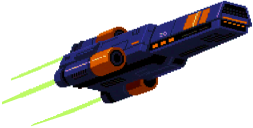Explore >> Select a destination

|
You are here |
webb.nasa.gov | ||
| | | | |
science.nasa.gov
|
|
| | | | | NIRCam detects light from: the earliest stars and galaxies in the process of formation, the population of stars in nearby galaxies, as well as young stars in | |
| | | | |
blogs.nasa.gov
|
|
| | | | | ||
| | | | |
asd.gsfc.nasa.gov
|
|
| | | | | I get a lot of questions asking why the James Webb Space Telescope is infrared, and how its images can hope to compare to the (primarily) optical Hubble Space Telescope. Why would NASA build something that isn't going to capture beautiful images exactly like Hubble does? The short answer to this is that JWST will absolutely capture beautiful images of the universe, even if it won't see exactly what Hubble does. (Spoiler: it will see a lot of things even better.) There are legit scientific reasons for JWS... | |
| | | | |
www.rockpapershotgun.com
|
|
| | | The non-Nintendo Switch 2 versions of Elden Ring will be getting a DLC pack that is being included in the Tarnished Edition version of the game. | ||




